MINA News Agency’s Team held an exclusive meeting with the Ambassador Extraordinary and Plenipotentiary of the Republic of Indonesia to Afghanistan Arief Rachman on Saturday at his residence in East Jakarta.
MINA’s team consisted of Editor in Chief Ismet Rauf, Senior Editor Widi Kusnadi, Head of Arabic Desk Rifa Berliana Arifin, Head of Reporters Rana Setiawan, reporter Sri Astuti and cameraman Abdullah.
In MINA Talks Program, Ambassador Arief emphasized that one thing that Afghanistan admires from Indonesia is inter-religious harmony and harmony among Muslims.
Both Afghan and Taliban leaders have seen how education broadly and particularly for women is given the same space as men. They stated that the Indonesian people who live in harmony and are full of peace in various differences, can be an example for peace in Afghanistan.
Also Read: Strengthening Bridges of Friendship and Cooperation between Indonesia and African Countries
Indonesia also has very significant role in multitrack diplomacy with a soft power diplomacy foundation, not only state actors but also non-state actors, namely the role of humanitarian organizations, religious organizations, and scholars in helping to bring about peace in Afghanistan.
Five years ago, the Indonesian Minister of Foreign Affairs, Retno Marsudi assigned Arief to become ambassador in Kabul. The man who had been used in Cambodia and in Pakistan as a Defense Attache was not afraid to be reassigned to thel conflict country.
The figure of Ambassador Arief Rachman was full of impressions when he is a preacher who had founded the Tahfidz Islamic Boarding School and the Manunggal Silaturahim Mosque in his neighborhood in Pasar Rebo, East Jakarta.
It is said that the naming of the Manunggal Silaturahim Mosque itself was inspired by Silaturahim Radio carrying the tagline “Islam yang Satu”, which positions itself on the path of open da’wah embracing differences and unity of the people.
Here’s an excerpt from the interview:
MINA: How did you feel while working in Afghanistan?
Ambassador Arief: Afghanistan is not only about bombs and war and the Taliban. Afghanistan is beautiful. Especially, Kabul and several other areas. I was very memorable while traveling there with family. I took my son to visit the Bamiyan Valley.
The Bamiyan Valley is an area about 180 km northwest of the Afghan capital. Arriving at the Bamiyan valley, we could not hide our amazement when we saw the beautiful scenery with the exoticism of the green fields stretching out.
Also Read: Ambassador: Climate Change is the Main Cause of Floods in Pakistan
MINA: Taliban, now is ruling Afghanistan. Taliban have good relations with Indonesia, what are the opportunities for cooperation with Afghanistan under the Taliban government?
Ambassador Arief: Indonesia and Afghanistan have a strong history because when Indonesia became independent on August 17, 1945, two years later, Afghanistan recognized Indonesia’s ownership on September 23, 1947.
Afghanistan, which became independent on August 19, 1919, then seems to be independent again after the United States (US) and its allies for 20 years since December 2001. The US officially withdrew all its troops from Afghanistan on August 31, 2021.
Through the policy of President Joe Biden, who has decided the future of Afghanistan itself, by the end of August 2021, Afghanistan will begin to improve its own countrymen.
Taliban group, which is now the ruler of Afghanistan, is in turmoil with residents who reject the Taliban. However, the warring groups in Afghanistan are Afghan citizens themselves, who need to be reconciled through various diplomatic efforts.
One thing that Afghanistan admires from Indonesia is the harmony between religious believers or fellow Muslims.
The leaders of Afghanistan and the Taliban have also seen how education in general and especially for women is given equal space with men in Indonesia. They stated that the Indonesian people who live in harmony and peace in various differences can be an example for peace in Afghanistan.
Afghanistan learn from Indonesia to strengthen tolerance and interpretation of Islamic civilization as rahmatan lil alamin or mercy for the universe.
Also Read: AMBASSADOR TALKS/Russian Ambassador: Attack on Ukraine Tough Choice to Make
MINA: How about the opportunities for cooperation in the economic field?
Ambassador Arief: The opportunity for trade cooperation between Indonesia and Afghanistan is enormous because the majority of Afghanistan’s population is based on trade. This of course improves the welfare of the people of both countries quite significantly.
President Joko Widodo in his direction conveyed that peace must be accompanied by community welfare. Therefore, this trade cooperation opportunity must be maximized to achieve community equality.
Data from the Central Statistics Agency (BPS), Indonesia’s export performance to Afghanistan increased 361.7 percent from US$495.28 thousand in July 202 1 to US$2.28 million in August 2021. This increasekp in export realizatio occurred when power in Afghanistan was officially taken over by the Taliban since mid-August.
Also Read: Palestinian Administrative Detainees Boycott Occupation Courts for 40th Consecutive Day
BPS noted that the main export performance was the products of the pharmaceurxtical industry, fruits, rubber and rubber products.
However, there are no details on the export value of each commodity. On the other hand, BPS noted that Indonesia’s trade balance recorded a surplus of US$4.74 billion in August 2021. This is the highest record in history.
Regarding the increase in exports, Indonesia’s exports to Afghanistan have been large for a long time. It just may not have been recorded in official data.
MINA: How to restore people’s trust, especially on issues that are highlighted by the world?
Also Read: Interview with Pakistani Ambassador to Indonesia: Kashmir Solidarity Day
Ambassador Arief: In recent years, the Afghan government and the Taliban group have come to Indonesia several times to learn how this plural country can be democratic. As a country with the largest Muslim population in the world, it turns out that the Indonesian people can unite to build an advanced nation.
The spirit of entrepreneurship and learning of the Afghan people is also quite high, even exemplary with all the situations that befell them.
Certainly, there is no doubt that there will be changes and for this process it will take time, can’t turn the palm of the hand that happened. Moreover, it is with the Shari’a and one’s beliefs. We can’t do without it, can’t. We must also understand, if without anyone we?
If in the past the Taliban was propagated as something cruel and far from women, of course it is not completely like that, because indeed in our state of war, Islam is always more guarded and afraid if women are injured and then become victims of war, which should not be done especially children.
Also Read: Khaled Meshaal to MINA: Indonesia is at the Forefront of Those Who Support Palestinian Cause
Well, it was then exploited so that the world that already understood the importance of the role of women was shocked by this, even though there were circumstances that were so needed. Their shari’a according to their sect is different from ours and yes, it was adapted to the circumstances.
When it’s safe, God willing. I think they have a daughter who also needs school, they want to work with a female doctor, so who is the doctor from?
Regarding certain rules for women themselves not only in Afghanistan but also in Pakistan, Muslims in India as well as Saudi.
Indonesia used to be like that too, there were no girls’ schools until finally people slowly understood, the process so it didn’t cause slander and negative issues.
Also Read: Ambassador: Many Opportunities on Relationship Between Indonesia-UAE
We have to be smart and be able to see the situations and who is speaking. Don’t add to the confusion, let alone don’t want to ask questions, don’t want to learn, so that later we become spreaders of slander too.
Indonesian Foreign Minister Retno Marsudi and I are the ones who continue to voice the importance of the role of women in peace in Afghanistan. Since 2013, Indonesia and Afghanistan have had an MoU on the empowerment of Afghan women. If someone says it was the previous government, not the Taliban.
MINA: What is the role of Indonesia in responding to the challenges of the situation in Afghanistan?
Ambassador Arief: We emphasize that Indonesia’s role is very significant in the context of multitrack diplomacy based on soft power diplomacy, not only state actors but also non-state actors, namely the role of organizations, religious organizations, and ulama in helping to bring about peace in Afghanistan.
Also Read: Taliban Needs Time for Women’s Issue, Says Indonesian Ambassador
With a soft power approach in a heart-to-heart meaning approach, we hope that future cooperation will be even better. We have a lot in common, especially religious and cultural similarities.
Indonesia can contribute to solving the Afghanistan problem especially after the country is controlled by the Taliban.
In the last three years, Indonesia has been actively involved in the peacebuilding process in Afghanistan. One of forms of this effort is to invite representatives of the Taliban and the Afghan government to Jakarta in 2019.
Another contribution of Indonesia to resolving the conflict in Afghanistan is hosting a trilateral conference of Indonesian, Afghan and Pakistani ulama in 2018.
The conference, which was held at the Bogor Presidential Palace, resulted in the “Bogor Declaration” which contained a number of important points for peace and conflict resolution in Afghanistan.
The Indonesian government has also invited dozens of young Afghans to stay in one of the Islamic boarding schools in Central Java.
In addition, the meeting in Afghanistan in 2018 with the Minister of Women from Indonesia as a keynote speaker added positive values in the eyes of the Afghan people.
Indonesia is considered special, one of which is because it has successfully held the world women’s conference.
Indonesia has also built the Indonesia Islamic Center, in which the Assalam Mosque has a capacity of 2,500 worshipers. In the education sector, Indonesia is also offering new scholarships for Afghan students.
President Joko Widodo visited Kabul in January 2018.
In the future, Indonesia’s efforts to help resolve the conflict in Afghanistan seek to bridge peace between the Taliban and non-Taliban groups, through cultural diplomacy, one of which is facilitating intensive dialogue with moderate Indonesian clerics.
In addition, Indonesia can carry out multitrack diplomacy in Afghanistan through humanitarian institutions such as the Medical Emergency Rescue Committee (MER-C) which has started humanitarian activities in Afghanistan during the first war (2001-2002), can now play a more active role after the war.(WT/RE1)
Mi’raj News Agency (MINA)






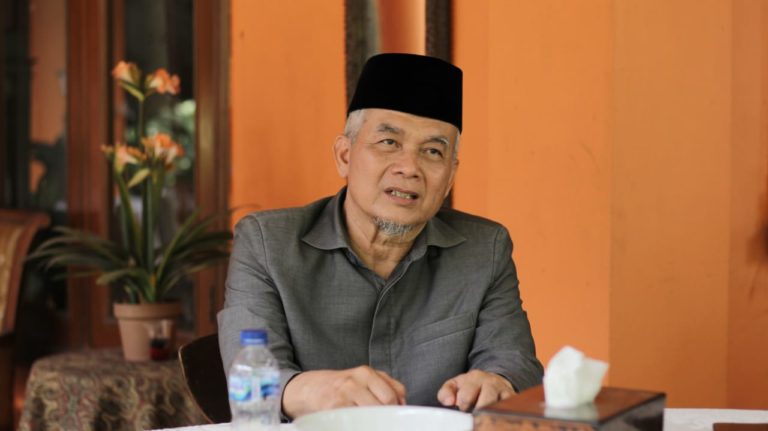

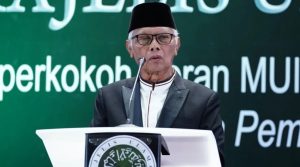


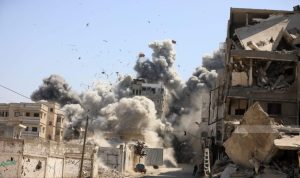

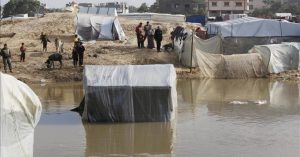
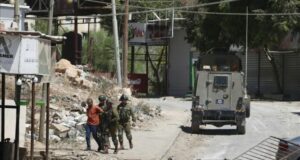
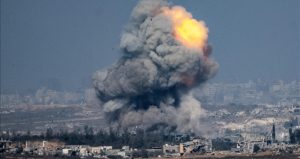
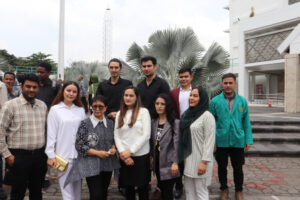
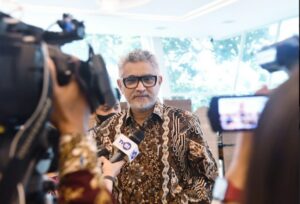
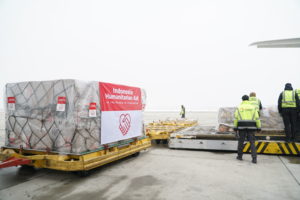
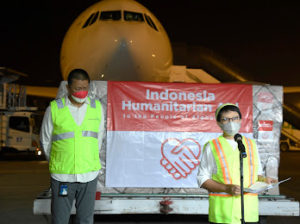
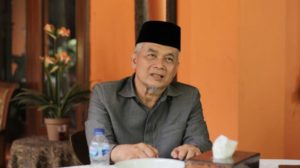
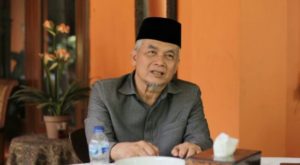












 Mina Indonesia
Mina Indonesia Mina Arabic
Mina Arabic